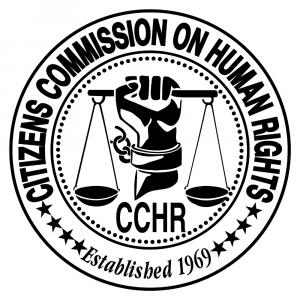Under International Pressure, Psychiatrists Forced to Confront Ending Coercive Mental Health Practices

The Council of Europe adopted a resolution that called on its member nations to immediately start a transition to the abolition of coercive mental health practices because of the overwhelmingly negative experience by patients.

Citizens Commission on Human Rights co-founder, psychiatrist Thomas Szasz, MD, wrote that increasing numbers of people, both mental health professionals and the public, acknowledge that involuntary psychiatric interventions are methods of social control, not treatment.
New evidence of the extent of and harm from involuntary mental health treatment emerges, as efforts continue to minimize or end the coercion.
In a groundbreaking report issued in 2017, the UN Special Rapporteur on the right of everyone to the enjoyment of the highest attainable standard of physical and mental health called for the elimination of nonconsensual mental health treatment, stating: “Coercion in psychiatry perpetuates power imbalances in care relationships, causes mistrust, exacerbates stigma and discrimination and has made many turn away, fearful of seeking help within mainstream mental health services.”
The psychiatric practices targeted for eradication include involuntary institutionalization, the forcible administering of psychiatric drugs, the use of mechanical and chemical restraint and seclusion, and nonconsensual electroconvulsive therapy (ECT, or electroshock).
In 2019, the Council of Europe (COE) adopted a resolution that called on its member nations “to immediately start to transition to the abolition of coercive methods in mental health settings.” The resolution cited evidence pointing to the “overwhelmingly negative experience of coercive measures, including pain, trauma and fear.” The COE further stated: “Involuntary ‘treatments’ administered against the will of patients, such as forced medication and forced electroshocks, are perceived as particularly traumatic. They also raise major ethical issues, as they can cause irreversible damage to health.”
More recently, the World Health Organization (WHO) issued guidance in 2021 advising countries to end coercive mental health practices, which it said are used “despite the lack of evidence that they offer any benefits, and the significant evidence that they lead to physical and psychological harm and even death.” The WHO guidance extends its call for prohibiting coercion even to those experiencing acute mental distress, noting that individuals in mental health crisis “are at a heightened risk of their human rights being violated, including through forced admissions and treatment.”
Explaining its stand, WHO’s guidance states: “People subjected to coercive practices report feelings of dehumanization, disempowerment and being disrespected. Many experience it as a form of trauma or re-traumatization leading to a worsening of their condition and increased experiences of distress.”
As a result of these calls for reform, evidence has emerged that at least some psychiatrists are confronting the harm of the coercive practices and looking to reform those practices.
In an article recently published in Psychiatric Rehabilitative Journal, psychiatrists reported on interviews with patients who were not allowed to make decisions about their own mental health treatment, but were subjected involuntarily to treatment decided by others. Analysis of the interviews showed patients strongly rejected the substitute decision makers, felt strong stigma because of their exclusion from the decision-making, and struggled to regain their autonomy. [1]
A new study, published in The Lancet, investigated whether the implementation of three of 12 guidelines issued by the German Association of Psychiatry in 2018 to reduce coercive treatment was effective. The 12-month study, comprising 54 German psychiatric wards, found that the use of coercive measures dropped by nearly half (45%) over the course of the study in wards whose staff received ongoing support for implementing the guidelines. Even in the wards acting as the control group, whose staff only received an initial workshop presentation of the study, coercive measures declined by 28%. [2]
Italian and Swiss psychiatric researchers recently investigated to determine the prevalence of the use of mechanical restraint, which is “an extremely debated topic,” they wrote. Mechanical restraint restricts a patient’s freedom of movement without their permission, typically in a psychiatric setting by strapping the person’s arms, legs and torso to a table. The finding that 14% of the psychiatric patients – one in every seven – had been put in mechanical restraint during in-patient treatment at the Italian psychiatric unit being studied led the researchers to call for methods of limiting the practice. “It is time for national and international guidelines on [mechanical restraint] in psychiatric patients,” they urged. The study was published in Medicina. [3]
Peter Gotzsche, M.D., recently wrote about an autistic 24-year-old who, after being wrongly subjected to mechanical restraints and forced drugging in a Danish psychiatric ward, took his case to the European Court of Human Rights. The court had previously ruled that the continued mechanical restraint of another Danish psychiatric patient after he was completely calm was a violation of the European Convention on Human Rights’ prohibition against inhuman or degrading treatment. As a result of the more recent case, the Danish Psychiatry Act was amended in 2021 so that guards watching a patient in mechanical restraint must make notes on the patient’s condition every 15 minutes and release the patient as soon as they are calm. [4]
As an aside, Gotzsche wrote: “In Iceland, seclusion and restraint were abolished in 1932 and never used again. That year, psychiatrist Helgi Tomasson took the shackles, straightjackets and other physical restraints that existed in the mental hospital, Kleppur, and burnt them in a furnace – all except one set, which he sent to the Parliament where it is still on display. This should be done in all countries.”
Years before the current movement to end coercive psychiatric practices, Citizens Commission on Human Right (CCHR) co-founder, the late professor of psychiatry and humanitarian Thomas Szasz, M.D., advocated an end to forced psychiatric treatment. Considered by many scholars and academics to be psychiatry’s most authoritative critic, Dr. Szasz wrote: “Increasing numbers of persons, both in the mental health professions and in public life, have come to acknowledge that involuntary psychiatric interventions are methods of social control. On both moral and practical grounds, I advocate the abolition of all involuntary psychiatry.” [5]
CCHR has been a global leader in the fight against the coercive and abusive use of involuntary commitments, seclusion and restraints, psychiatric drugs, and electroshock. In 1969, CCHR issued a Mental Health Declaration of Human Rights that laid out fundamental human rights in the field of mental health to ensure the right to one’s own mind and the right to be free from forced mental health treatment. [6]
The Citizens Commission on Human Rights was co-founded in 1969 by members of the Church of Scientology and Dr. Szasz to eradicate abuses and restore human rights and dignity to the field of mental health. CCHR has been instrumental in obtaining hundreds of laws against psychiatric abuse and violations of human rights worldwide.
The CCHR National Affairs Office in Washington, DC, has advocated for mental health rights and protections at the state and federal level. The CCHR traveling exhibit, which has toured major cities worldwide and educated people on the history to the present day of abusive and racist psychiatric practices, has been displayed in Washington, DC, at the Congressional Black Caucus Foundation Annual Legislative Conference and other locations.
[1] https://pubmed.ncbi.nlm.nih.gov/37971817/
[2] https://www.ncbi.nlm.nih.gov/pmc/articles/PMC10696227/
[3] https://www.mdpi.com/1648-9144/59/10/1847
[4] https://www.madinamerica.com/2023/12/psychiatric-patient-law-restraints/
[5] https://www.cchrint.org/about-us/co-founder-dr-thomas-szasz/quotes-on-involuntary-commitment/
[6] https://www.cchrint.org/about-us/declaration-of-human-rights/
Anne Goedeke
Citizens Commission on Human Rights, National Affairs Office
+1 202-349-9267
email us here
Visit us on social media:
Facebook
Dr. Thomas Szasz tribute - psychiatrist, acclaimed author & CCHR co-founder
Legal Disclaimer:
EIN Presswire provides this news content "as is" without warranty of any kind. We do not accept any responsibility or liability for the accuracy, content, images, videos, licenses, completeness, legality, or reliability of the information contained in this article. If you have any complaints or copyright issues related to this article, kindly contact the author above.

